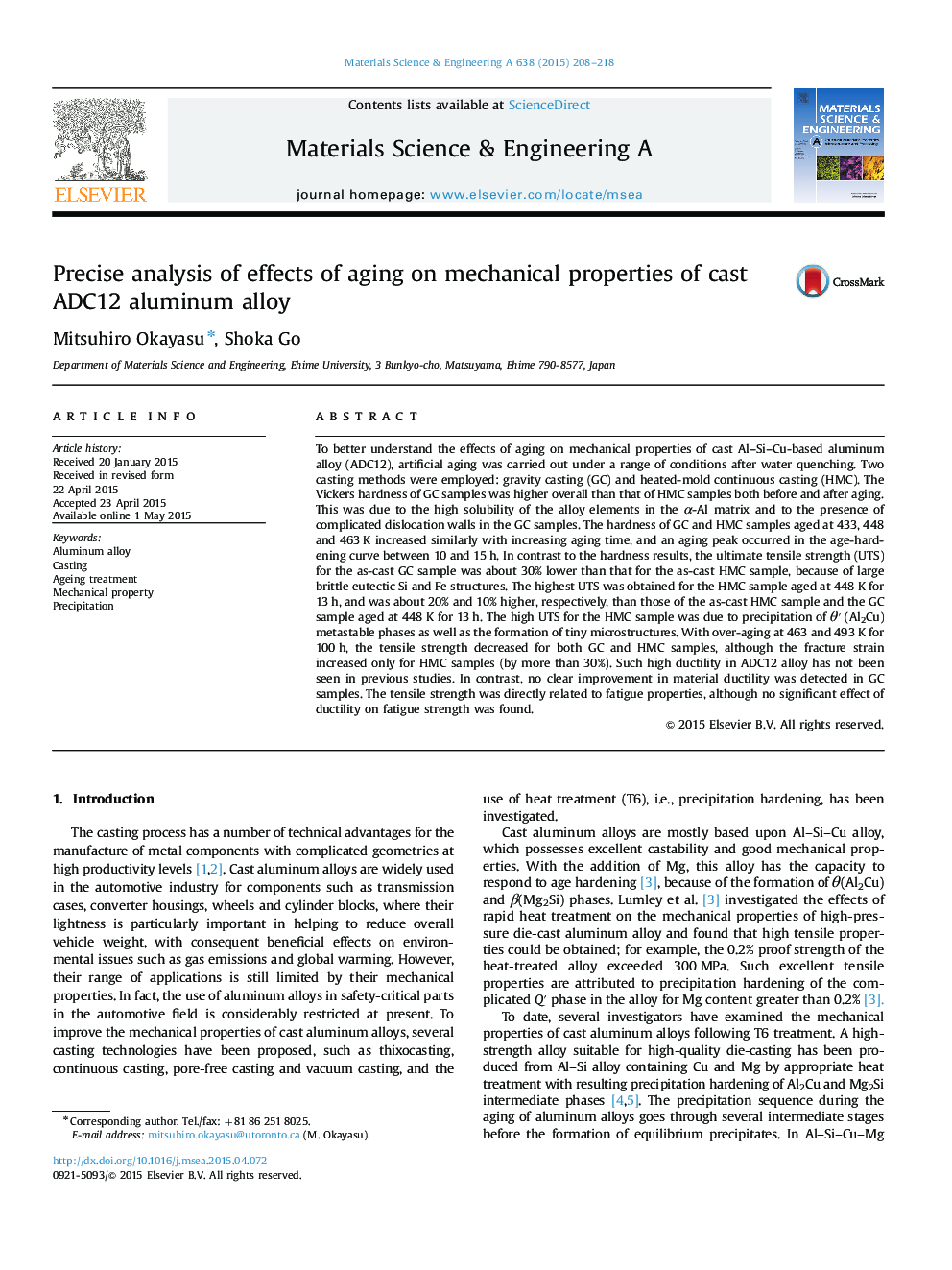| کد مقاله | کد نشریه | سال انتشار | مقاله انگلیسی | نسخه تمام متن |
|---|---|---|---|---|
| 7978087 | 1514705 | 2015 | 11 صفحه PDF | دانلود رایگان |
عنوان انگلیسی مقاله ISI
Precise analysis of effects of aging on mechanical properties of cast ADC12 aluminum alloy
دانلود مقاله + سفارش ترجمه
دانلود مقاله ISI انگلیسی
رایگان برای ایرانیان
کلمات کلیدی
موضوعات مرتبط
مهندسی و علوم پایه
مهندسی مواد
دانش مواد (عمومی)
پیش نمایش صفحه اول مقاله

چکیده انگلیسی
To better understand the effects of aging on mechanical properties of cast Al-Si-Cu-based aluminum alloy (ADC12), artificial aging was carried out under a range of conditions after water quenching. Two casting methods were employed: gravity casting (GC) and heated-mold continuous casting (HMC). The Vickers hardness of GC samples was higher overall than that of HMC samples both before and after aging. This was due to the high solubility of the alloy elements in the α-Al matrix and to the presence of complicated dislocation walls in the GC samples. The hardness of GC and HMC samples aged at 433, 448 and 463 K increased similarly with increasing aging time, and an aging peak occurred in the age-hardening curve between 10 and 15 h. In contrast to the hardness results, the ultimate tensile strength (UTS) for the as-cast GC sample was about 30% lower than that for the as-cast HMC sample, because of large brittle eutectic Si and Fe structures. The highest UTS was obtained for the HMC sample aged at 448 K for 13 h, and was about 20% and 10% higher, respectively, than those of the as-cast HMC sample and the GC sample aged at 448 K for 13 h. The high UTS for the HMC sample was due to precipitation of θⲠ(Al2Cu) metastable phases as well as the formation of tiny microstructures. With over-aging at 463 and 493 K for 100 h, the tensile strength decreased for both GC and HMC samples, although the fracture strain increased only for HMC samples (by more than 30%). Such high ductility in ADC12 alloy has not been seen in previous studies. In contrast, no clear improvement in material ductility was detected in GC samples. The tensile strength was directly related to fatigue properties, although no significant effect of ductility on fatigue strength was found.
ناشر
Database: Elsevier - ScienceDirect (ساینس دایرکت)
Journal: Materials Science and Engineering: A - Volume 638, 25 June 2015, Pages 208-218
Journal: Materials Science and Engineering: A - Volume 638, 25 June 2015, Pages 208-218
نویسندگان
Mitsuhiro Okayasu, Shoka Go,